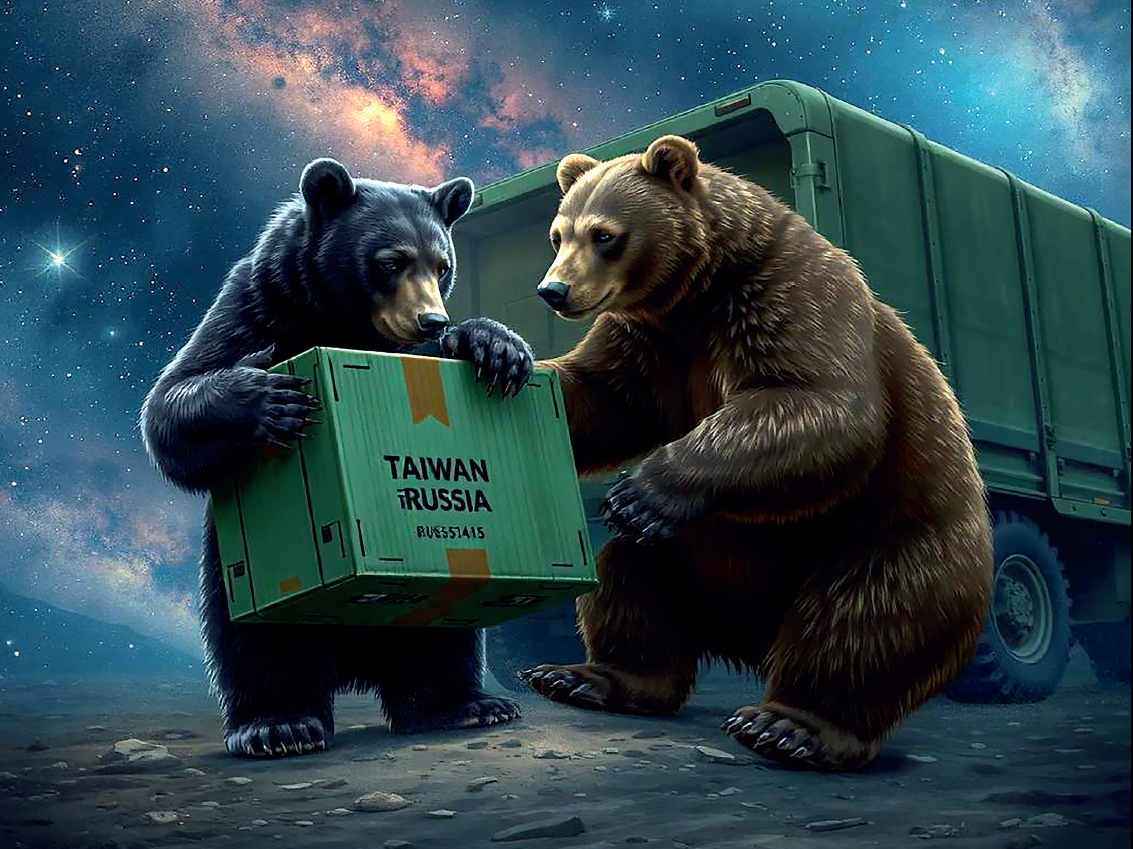Bring to bear: Taiwanese critical import to Russia

The basis of Russian-Taiwanese relations is the fact that the Russian Federation does not recognise Taiwan’s independence, considering it an integral part of China.
It started when the Soviet Union severed relations with Taiwan on October 3, 1949.
In response, Taiwan banned trade and investment in the USSR. The absence of diplomatic relations hampered trade and economic cooperation between the countries, which was mainly carried out on a non-governmental basis.
In 2014, after Russia’s occupation of the Ukrainian Crimean Peninsula and started a hybrid war against Ukraine, relations between Russia and Taiwan experienced a noticeable downturn.
However, by 2018, bilateral trade had generally adapted to the sanctions.
Russia’s full-scale invasion of Ukraine in February, 2022, dealt a serious blow to the bilateral relations between Russia and Taiwan.
On the second day after the outbreak of the war the Taiwanese Foreign Ministry strongly condemned Russia’s actions. In response, the Russian government added Taiwan to its list of unfriendly countries.
Since then, according to the Customs Administration of the Ministry of Finance of Taiwan, the volume of mutual trade has consistently declined year-on-year.
At the same time, Russia is heavily dependent on imports – in April 2022 62% of Russian companies reported that they could not find suppliers in the Russian domestic market.
Because of the failure of Russia’s domestic industry to meet these requirements, interest in cutting-edge Taiwanese technologies has grown significantly.
Taiwan’s lack of systematic enforcement of export control against Russia has allowed the latter’s importers to become more active.
Imports through third countries contributed to the increase in supplies to the Russian Federation. If during 2019-2021 indirect supplies did not exceed $840 million annually, then in 2022 they amounted to $1.75 billion, and in 2023 – $1.85 billion.
This does not mean that trade relations are asymmetry. Following Russia’s full-scale invasion of Ukraine in 2022, the European Union and the G7 imposed sanctions on Russian fossil fuel exports, including coal as of August 2022. Before the invasion, the key buyer of Russian coal for Taiwan’s energy needs was the Taiwan Power Company, commonly known as Taipower. In September 2022, Taipower announced that it had received its final batch of coal from Russia.
Although Taipower decided to stop importing Russian coal, supply to Taiwan has continued, albeit at a reduced level.
According to data from the Taiwan Customs Service, from October 2022 to September 2024, Taiwan purchased $3.84 billion worth of Russian coal.
Metalworking equipment has long been an integral element of defence production. Taiwanese machine tools are sought-after due to their quality and affordability.
In 2019-2021, Taiwanese-made products ranked third in total import demand. In Russia, Taiwanese equipment is used by aircraft factories, weapons systems manufacturers and other machine-building companies.
The top-5 manufacturers whose machine tools were imported to Russia in 2022-2023 are I Machine Tools Corp, Victor Taichung Machinery Works Co., Ltd, Kao Fong Machinery Co., L.K. Machinery Corp, Akira Seiki Co., Ltd.
In 2022, after the introduction of international sanctions, Russian companies faced the need to circumvent these restrictions. As a result, manufacturers and importers have had to establish cooperation with manufacturing plants from Taiwan through third countries. In addition, the Russian trend has been to conceal the true origin of the machines.
This is how numerous trademarks appeared under which imported equipment is sold. In some cases, Russian entrepreneurs mark products with the brands of non-existent foreign manufacturers, while in others they label imported machines as made in Russia.
One of the reasons is the fact that Russian legislation gives priority to Russian equipment during defense procurement. And getting a contract for supply to defense industries is always attractive for private businesses.
In the war of attrition waged by the Russian Federation, imports have become an important factor in maintaining the capacity to further occupy Ukraine’s sovereign territory, and critical in the production of high-tech weapons.
Taiwanese-made products are popular in Russia and are widely used for the production of weapons and military equipment, as well as for re-equipping and developing its own production capacity, in particular in the military-industrial complex.
The fact that Russia does not recognise Taiwan as a separate entity and, moreover, considers it an unfriendly country has not prevented Taiwanese companies from trading with Russia.
To increase imports of products for the military-industrial complex, Russia continues to use direct supplies from Taiwan, and in case of difficulties, engages suppliers from third countries.
It is noteworthy that some Taiwanese manufacturers are not deterred even by the Russian connections of individual suppliers.
World media reports about the high probability of China launching a military operation against Taiwan also did not hinder cooperation with Chinese intermediaries.





